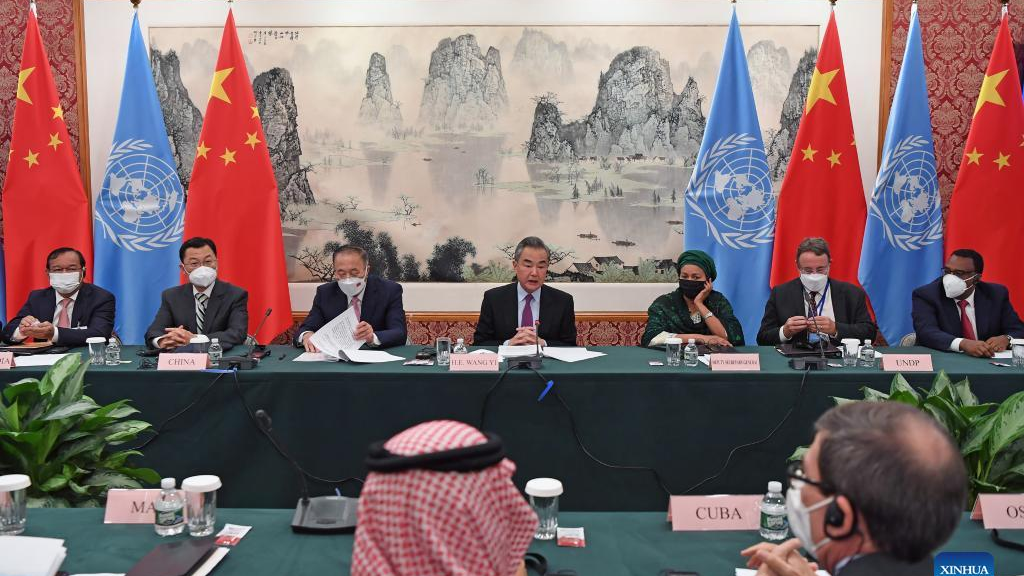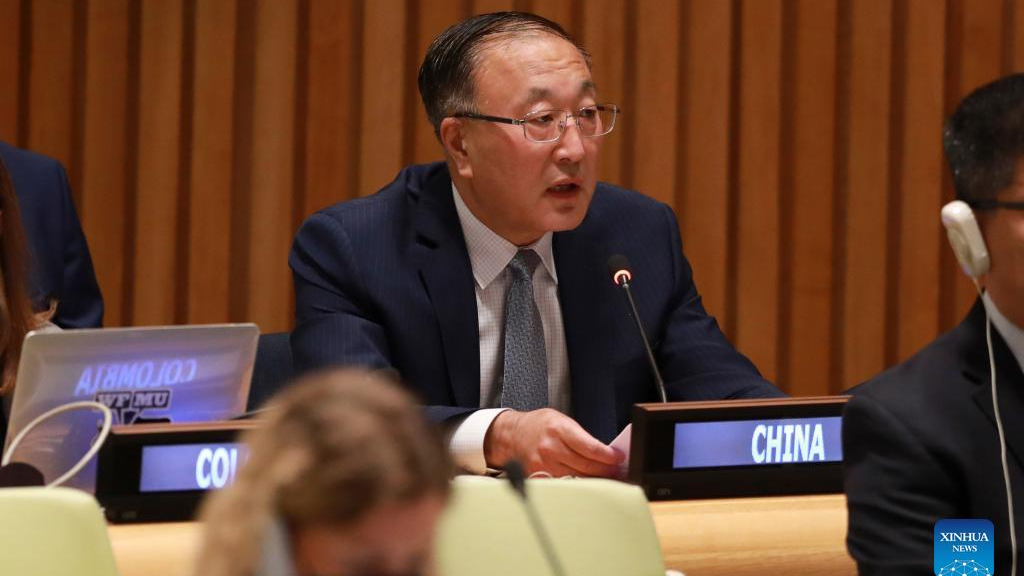
Chinese State Councilor and Foreign Minister Wang Yi chairs the Ministerial Meeting of the Group of Friends of the Global Development Initiative (GDI) in New York, the U.S., September 20, 2022. [Photo/Xinhua]
By Hannan Hussain
On September 20, Chinese State Councilor and Foreign Minister Wang Yi chaired the Ministerial Meeting of the Group of Friends of the Global Development Initiative (GDI) on the sidelines of the ongoing UN General Assembly session in New York. Wang detailed key group action-points to bolster the implementation of the UN 2030 Sustainable Development Agenda, and underlined GDI partnerships in critical areas such as food production, clean energy and poverty alleviation. All are to advance truly inclusive, international development.
His emphasis on releasing the first list of the GDI project pool has strong merit. It is a vital call to use high-resource development partnerships in a way that helps bridge the capacity divide across nations. 50 practical cooperation projects – from industrialization to poverty reduction areas – could strengthen the foundation for progress in Sustainable Development Goals (SDG), when one-quarter of humanity is caught in the throes of instability. Similarly, high level representatives of 60 countries stood witness to the GDI's initiative on 1,000-strong capacity building projects. These can increase the likelihood of adaptive capacities in developing countries, and promote domestic resilience to multiplying food, climate, poverty and conflict challenges.
Established networks of cooperation between China and its international partners inject further momentum into the GDI's long-term sustainability objectives. South-South cooperation continues to serve as a major priority in alignment with UN partners, and in Wang's telling, cooperation networks also span education, pandemic response, climate change and agriculture. Some of these serve as intersecting challenges under the GDI project pool, and can scale participation and resources to plug inequities in the international development space.
Tuesday's China-led Ministerial Meeting gave a very strong signal on sustainable energy partnerships and food production enhancement. The latter stands to gain as Beijing extends institutional support for cooperation agreements with the UN's Food and Agriculture Organization. Consider it a valuable inlet to diversify engagements towards globally competitive spheres, such as digital and innovative agricultural finance. A similar thread runs through sustainable energy security. China called for the promotion of the Global Clean Energy Cooperation Partnership, which takes the GDI another step closer to supporting a mutually beneficial renewable energy transition. The world has been long waiting.

Zhang Jun, China's permanent representative to the United Nations, delivers the joint statement by the Group of Friends of the Global Development Initiative (GDI) at a General Assembly high-level special event, New York, the U.S., July 18, 2022. [Photo/Xinhua]
As Wang pointed out, there is a need to optimally leverage cooperation platforms provided by the GDI to better fulfill the distinct development needs of entire nations and regions.
Since its inception, the GDI has positioned itself as an all-inclusive accelerant to the UN's agenda on sustainable development. The Group of Friends of the GDI has already attracted formal participation from dozens of countries, and stands committed to the 32 practical cooperation measures announced at the High-level Dialogue on Global Development. Calls to improve governing bodies, pursue closer coordination between the GDI and UN bodies, and support a special envoy for poverty eradication with UN support, are noble follow-ups to the high level dialogue. They send a message of unity on future development action as participation opens more gates.
Since the very mission of global sustainable action is vast in scale, proportional support makes perfect sense. It is here that GDI partners gave a welcome sign of support to a task force that will promote the initiative and count principles of UN development agencies among its core. Add to that Beijing's expressed support for supply chain connectivity, and the noble pursuit of a digital education world alliance, and it is increasingly clear that the group has the cooperative capacity and resources to inform 2030 Agenda progress in nations, regions and sub-regions.
One of the major advantages of the GDI is the absence of barriers to participation. The China-led initiative encourages long-term participation from developed and developing countries alike, and recognizes the need for multilateral institutions to direct funding towards the latter for strong domestic capacities. The GDI's relevance to a world in distress is difficult to understate at the moment: protracted conflicts, climatic spillovers, rampant poverty and wide resource shortages threaten to compound existing inequalities and adversely affect development potential of many states. That deals a challenge to the timely attainment of the 2030 UN Sustainable Development Agenda, unless future benefits are shared by all, and the development trajectories of all states are respected for their independence.
The GDI's movement towards a new phase of practical cooperation gives much-needed weight to those development pursuits, with renewed optimism for generations to come.
The author is a foreign affairs commentator.

 中文
中文



